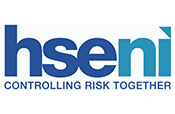Health and safety in care service businesses
Hygiene and hazardous substances in care service businesses
If you run a care service business, such as a care home or crèche, you need to pay particular attention to hygiene practices and procedures.
Elderly and young clients may be more vulnerable to infections and to harm from spillages and other accidents. Businesses providing care to them may face particular issues of workplace hygiene.
Hygiene hazards in care homes
Look at all the tasks being carried out in your business and see which ones involve potential hygiene risks. You need to ensure:
- food preparation areas are clean and uncluttered
- spillages are mopped up straight away
- kitchen waste is properly stored and disposed of
- laundry is properly bagged, with soiled laundry separated
- clinical waste and sharp objects are kept separate from general waste
- hand-wash facilities are plentiful and clean
- bathrooms and toilets are clean
Staff will often also require training and equipment to prevent the spread of infections in businesses such as child day care centres or care homes for the elderly. For instance, a crèche or playgroup may need procedures to prevent the spread of head lice.
In care homes, you may need to take steps to prevent the spread of blood-borne diseases. The biggest risk of blood-borne infection comes from needlesticks where sharps are infected. See diseases, infections and allergies in the workplace.
Hazardous substances in care homes
You're required by law to ensure that risks from hazardous substances used by your business are assessed and managed effectively. These substances may include things such as:
- cleaning products
- latex
- medicines
- blood
- asbestos
- solvent-based paint and ink
- solvents
- chemical waste
- pesticides
You must minimise exposure to hazardous substances and train staff in how to handle these substances safely. You should ensure staff know how to deal with accidents and spillages according to the Control of Substances Hazardous to Health Regulations (COSHH). Download COSHH guidance (PDF, 264K).
You must also comply with laws covering the disposal of hazardous waste. See dealing with hazardous waste.
